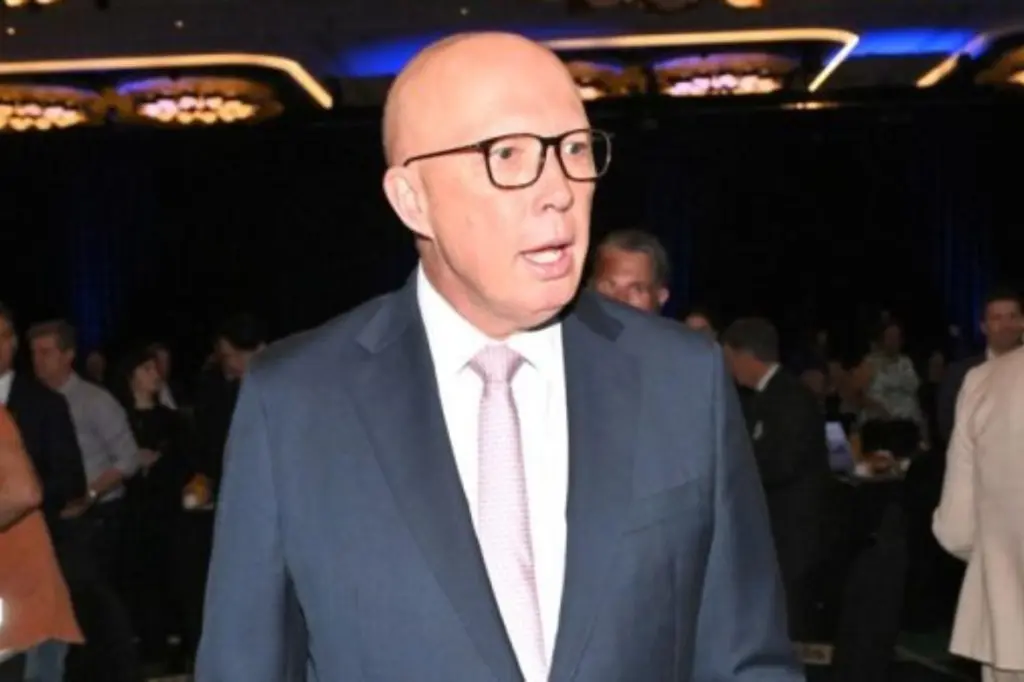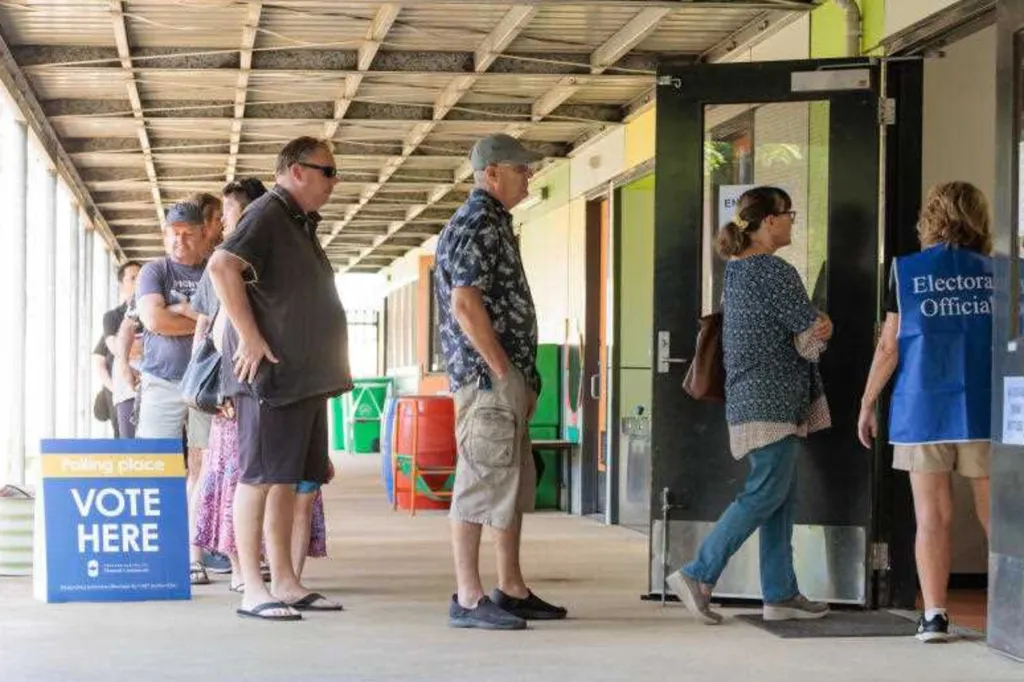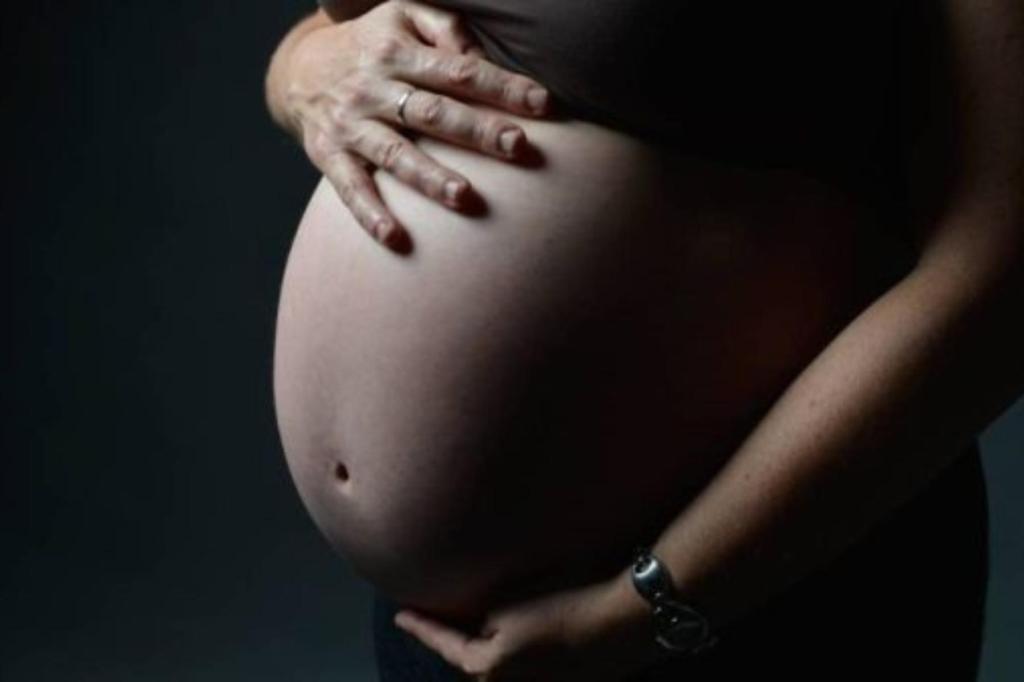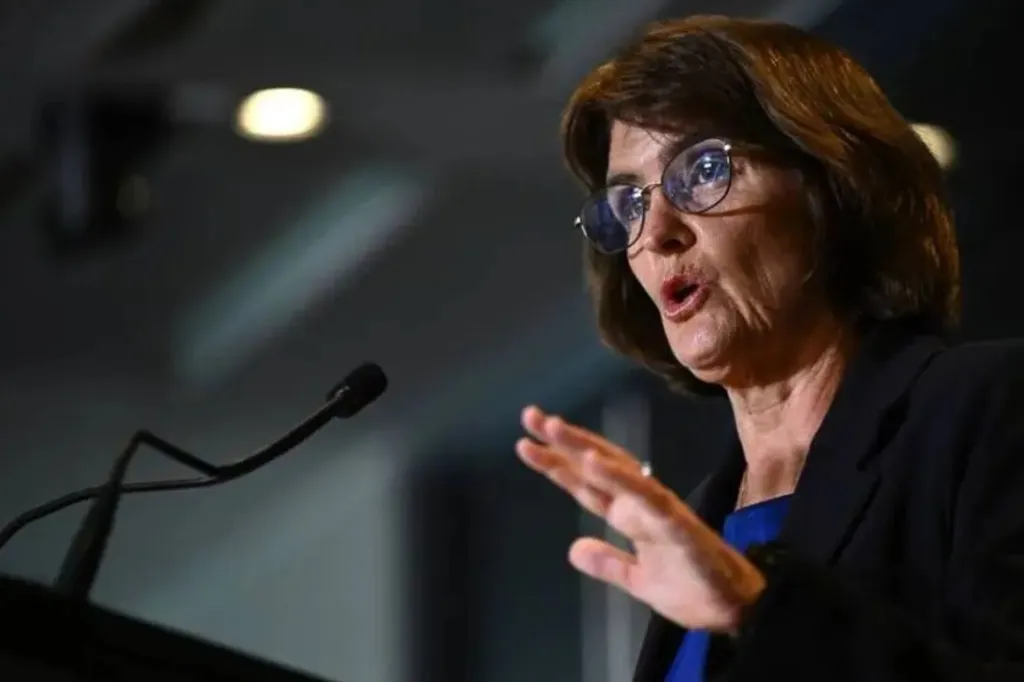Pulse check from Bank boss on Trump’s tariff whack
The Reserve Bank governor has sought to allay concerns following a week of economic tumult brought about by US President Donald Trump’s trade war.
Addressing a women’s economic inclusion event, Michele Bullock conceded she hadn’t intended on speaking about the central bank’s policy imperatives, but needs must.
“Inevitably, there will be a period of uncertainty and adjustment as countries respond to the ongoing tariff announcements by the United States administration,” she told the Chief Executive Women annual dinner on Thursday night.
“It will take some time to see how all of this plays out and the added unpredictability means we need to be patient as we work through how all of this could affect demand and supply globally.”
Financial markets have been in whipsaw trading since Trump’s initial tariff announcement on April 3, Australian time, with bonds and equities plunging or soaring at each development.
His latest announcement of a 90-day pause on country-specific tariffs above 10 per cent, with the exception of China, reassured markets across the globe and sent Australian shares soaring more than 4.5 per cent.
Trump conceded on Friday (Australian time) that there might be “transition difficulties”, while the White House clarified US tariffs on China had risen to 145 per cent.
Trump spoke of transition difficulties, transition problems and transition costs, but never got to the point of defining what he meant by them, Sky News UK reported.
The VIX index, which measures market volatility, has spiked up to 60 – the highest level since the early stages of the Covid-19 pandemic.
Volatility was to be expected as the process unfolded, Bullock said, but Australia was in a good position to weather the storm.
“First, we’re not currently seeing the same degree of impact as previous market events like in 2008 for example,” she said
You might like
“Second, the Australian financial system is strong and well placed to absorb shocks from abroad.”
Bullock said it was too early for the central bank to determine its interest rate response, but it was closely monitoring financial market conditions at home and abroad.
“We are carefully considering several factors including the response of our trading partners, additional counter-responses from the US, the response of our exchange rate and adjustments in other financial markets,” she said.
“A key focus for us is how all this uncertainty is affecting decisions made by households and businesses in Australia.”
On Wednesday, traders were pricing in five rate cuts by the end of the year, including the possibility of an emergency 50-basis-point reduction at the RBA’s next meeting in May.
Each 25 basis point cut would shave about $90 off monthly repayments on a typical $600,000 mortgage.
But Trump’s pivot prompted markets to walk back their bets, with just 25 basis points priced in for May and a total of 116 basis points by year’s end.
Deutsche Bank chief economist Phil O’Donaghoe, who 48 hours earlier had predicted a 50-basis-point cut for May, reverted his call to his previous prediction of 25 basis points for May.
“That said, our general conviction around the path for lower RBA rates has increased,” he said.
The remaining tariffs of 125 per cent on China and 10 per cent on the rest of the world will still weigh on the RBA’s assessment for global growth, while diversion of goods from the US to Australia would reduce inflation domestically.
NAB went the other way, doubling its forecast for a May cut from 25 to 50 basis points, having revised upwards the near-term unemployment rate while shaving growth expectations for 2025.
Chief economist Sally Auld and head of Australian economics Gareth Spence said the RBA needed to play catch-up, with the 4.1 per cent cash rate still in restrictive territory.
US weighs 15 offers to stem trade war
The Trump administration is weighing offers from more than a dozen countries on tariff deals and is close to agreements with some, White House economic adviser Kevin Hassett says.
“USTR has informed us that there are maybe 15 countries now that have made explicit offers that we’re studying and considering and deciding whether they’re good enough to present the President,” Hassett said at the White House, referring to the US trade representative.
Principals in the administration’s trade policy would meet at the White House on Thursday to discuss how to prioritise the separate negotiations, Hassett said.
Stay informed, daily
Hassett repeatedly ruled out off-the-shelf solutions but said negotiations were aimed at achieving tailored results.
According to earlier statements from the administration, representatives from more than 75 countries had already called the White House to express their willingness to engage in talks.
Trump said on Thursday that he would love to make a deal with China to end an escalating trade war.
He made the comments during a cabinet meeting open to the press.
US Treasury Secretary Scott Bessent said during the meeting that as deals were settled, there would be more certainty on trade policy.
Trump raised his tariffs on Chinese goods to 145 per cent after China placed retaliatory taxes of 84 per cent on imports from the US.
“There will be a transition cost and transition problems,” Trump said at the cabinet meeting.
“But in the end it’s going to be a beautiful thing.”
The European Union was due to launch counter-tariffs on about €21 billion ($37.59 billion) of US imports next Tuesday in response to Trump’s 25 per cent tariffs on steel and aluminium but the bloc will put them on hold for 90 days, European Commission president Ursula von der Leyen said.
The EU is still assessing how to respond to US car tariffs and the broader 10 per cent levies that remain in the trade war.
“We want to give negotiations a chance,” von der Leyen said on X.
“While finalising the adoption of the EU countermeasures that saw strong support from our member states, we will put them on hold for 90 days.”
Trump’s sudden decision on Wednesday to pause most of his hefty new duties brought relief to battered markets and anxious global leaders, even as he ratcheted up trade tensions with China.
China rejected what it called threats and blackmail from the US.
China would “follow through to the end” if the US persisted, Commerce Ministry spokeswoman He Yongqian told a regular press briefing.
China’s door was open to dialogue, but it must be based on mutual respect, the ministry said.
Trump, who says the tariffs aim to fix US trade imbalances, said a resolution with China was possible.
But officials have said they will prioritise talks with countries such as Vietnam, Japan, South Korea and others lined up to try to strike a bargain.
China’s yuan hit its lowest against the US dollar on Thursday since the global financial crisis.
Wall Street’s main indexes extended declines in afternoon trading on Thursday. The benchmark S&P 500 plunged more than 5 per cent as investor concerns about the economic damage from US tariff policies returned to the fore




